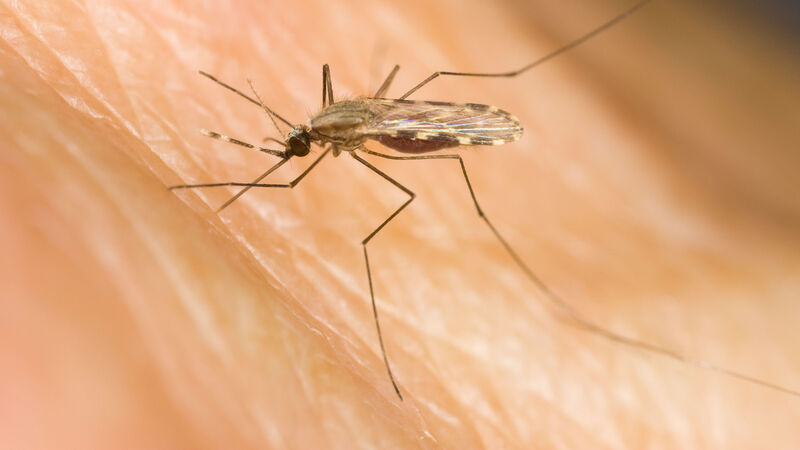Mosquito surveillance programme underway

Female malaria mosquito (Anopheles funestus) biting a human arm
For starters, let’s declare an interest. I’ve a grudge against mosquitoes. The little devils seem to go for me mercilessly whenever I visit sunny climes. I never see them doing it, though I certainly feel the irritation when lumps start rising on my skin. So, on a personal note, they’re not welcome here.
The above rant arises from the recent discovery of an Asian hornet, a notorious wasp, in Cork — a clear sign of what we can expect in the way of invasive species arriving on our shores as the climate progressively warms.








